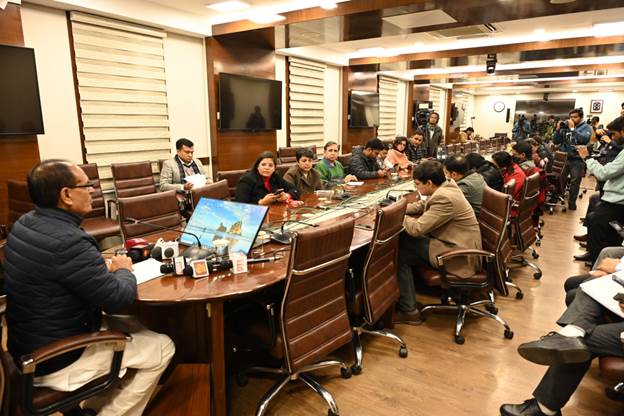New Delhi: The Union Cabinet has announced a series of significant decisions aimed at enhancing the welfare of farmers and strengthening India’s agricultural landscape. Speaking on these developments, Union Minister for Rural Development, Agriculture, and Farmers Welfare, Shri Shivraj Singh Chouhan, expressed his gratitude to Prime Minister Shri Narendra Modi and emphasized the government’s dedication to bringing prosperity to farmers and achieving the vision of a developed India.
A major highlight is the continuation of the Pradhan Mantri Fasal Bima Yojana and the Restructured Weather Based Crop Insurance Scheme until 2025-26. With a budget allocation of Rs 69,515.71 crore, these schemes aim to provide comprehensive risk coverage to farmers against natural calamities. Additionally, the government has introduced innovative technology initiatives, such as the Yield Estimation System (YES-TECH), which utilizes remote sensing for accurate crop yield predictions, and the Weather Information and Network Data System (WINDS) to enhance weather data collection through automated stations. The implementation of WINDS is set to begin in 2024-25.

In another significant move, the Cabinet extended the one-time special package for Diammonium Phosphate (DAP) fertilizers until December 31, 2025. This extension ensures affordability for farmers under the Nutrient Based Subsidy (NBS) policy. The initiative, with a budgetary requirement of Rs 3,850 crore for the extended period, is expected to stabilize fertilizer prices and support sustainable agricultural practices.
The Cabinet also approved a strategic Memorandum of Understanding (MoU) with Indonesia for the annual trade of one million metric tonnes of non-basmati white rice. This four-year agreement, facilitated by the National Cooperative Exports Limited (NCEL), aims to strengthen trade relations between India and Indonesia, address trade imbalances, and promote cooperative involvement in agricultural exports.
These initiatives reflect the government’s commitment to advancing agricultural technology, ensuring affordability of essential resources, and expanding India’s global trade footprint in agriculture. Targets have been set to achieve these objectives, with sustained efforts planned to benefit farmers and enhance rural livelihoods.
Source: PIB






